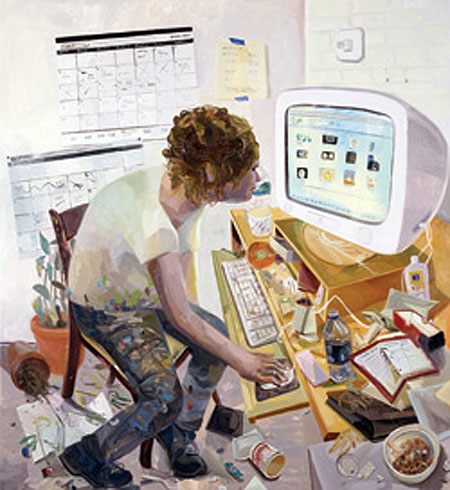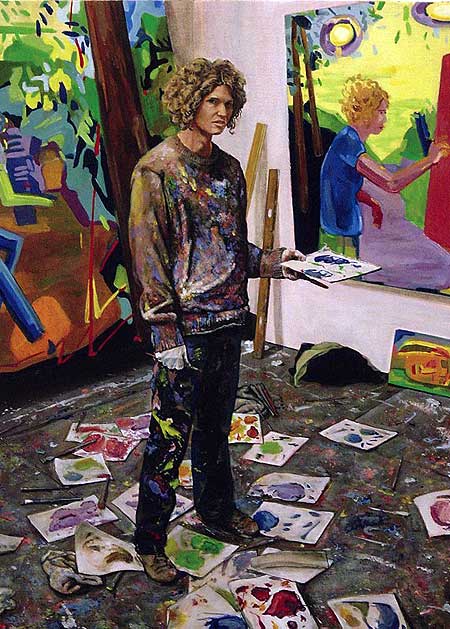"Strangely Massive" [mp3 removed]
Another piece using the samples from the Massive groovebox (a Reaktor instrument, not the synth).
They were supposed to be raw material for glitchy granular deformation but I exported them to a straight sampler. I like them unprocessed--they have an archaic club feel.
In this song I mapped the samples to an entire virtual (8 octave) keyboard, with percussive hits as single notes at the high end and other sounds playable as tuned single octaves.
Some of the better tunelets came from doing AbEx on the sequencer's piano roll. Not to make dissonance--those bits I discarded. The song has a "heavy" ravy sound--almost a parody.
Update: This font--I don't know. Windows IE can barely render it. It's more elegant on Firefox but on some sizes the kerning is such that lower case CLUB looks like DUB. This is the Word Press "original" skin and you can't get much more default-y, but I can't bear any lack of clarity, or DARITY, in the text. So far, I haven't found any WP themes I like better.
Update: I changed the title to "Strangely Massive" from what it was previously.


